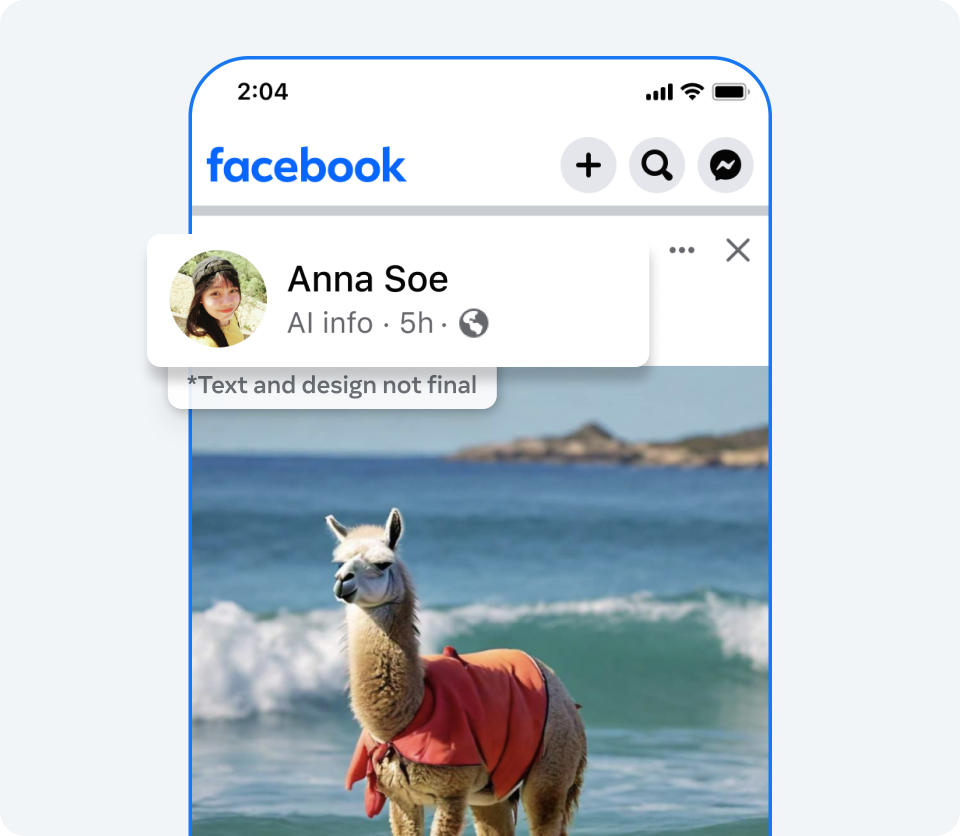
Facebook’s parent company Meta is reportedly gearing up to significantly increase the labeling of AI generated images on Facebook, Instagram and Threads.
As shared by the company in a Newsroom post, Meta already labels posts that are made using its Meta AI feature, but it wants to expand it to content created with other companies’ tools too.
This comes as part of Meta’s fight against misinformation and disinformation, accelerated by the upcoming U.S. presidential election.
According to Nick Clegg, Meta’s president of global affairs, the company has been working with its industry partners to “align on technical standards that signal when a piece of content has been created using AI.” It added “being able to detect these signals will make it possible for us to label AI-generated images that users post to Facebook, Instagram and Threads.”
 Meta says that it is working on being able to label all posts now, and it will start applying labels in all languages supported by Instagram, Facebook and Threads in the coming months.
Meta says that it is working on being able to label all posts now, and it will start applying labels in all languages supported by Instagram, Facebook and Threads in the coming months.
Currently, Meta’s AI-generated images contain markers, like the visible watermarks, alongside invisible markers in the image’s metadata. According to Meta, it will be able to recognize these invisible markers, even if the image that contains it wasn’t made with Meta’s AI. It will be able to recognize markers in images from Google, OpenAI, Microsoft, Adobe, Midjourney and Shutterstock, which are all working on adding metadata to images created by their tools.
However, metadata tracking will only work in cases where the user downloads the AI-generated image and uploads the same file to Facebook, Instagram or Threads. For example, if someone uses Microsoft’s Bing AI to generate an image and screenshots, it will lose the metadata. The snipped image could then be uploaded to Meta’s platforms without it being able to detect any ‘AI-generated’ marker in the image’s metadata.
It’s good to know that Meta is taking initiatives to ensure that its platform doesn’t become a hub for AI disinformation and misinformation, but it seems like it’s a losing battle for the company.
It also shared that companies haven’t started including similar markers in audio snippets and videos generated by AI, hence, Meta can’t detect and label such content as being AI-generated.
Check out Meta’s full Newsroom post about the initiative here.
Source: Meta
MobileSyrup may earn a commission from purchases made via our links, which helps fund the journalism we provide free on our website. These links do not influence our editorial content. Support us here.


